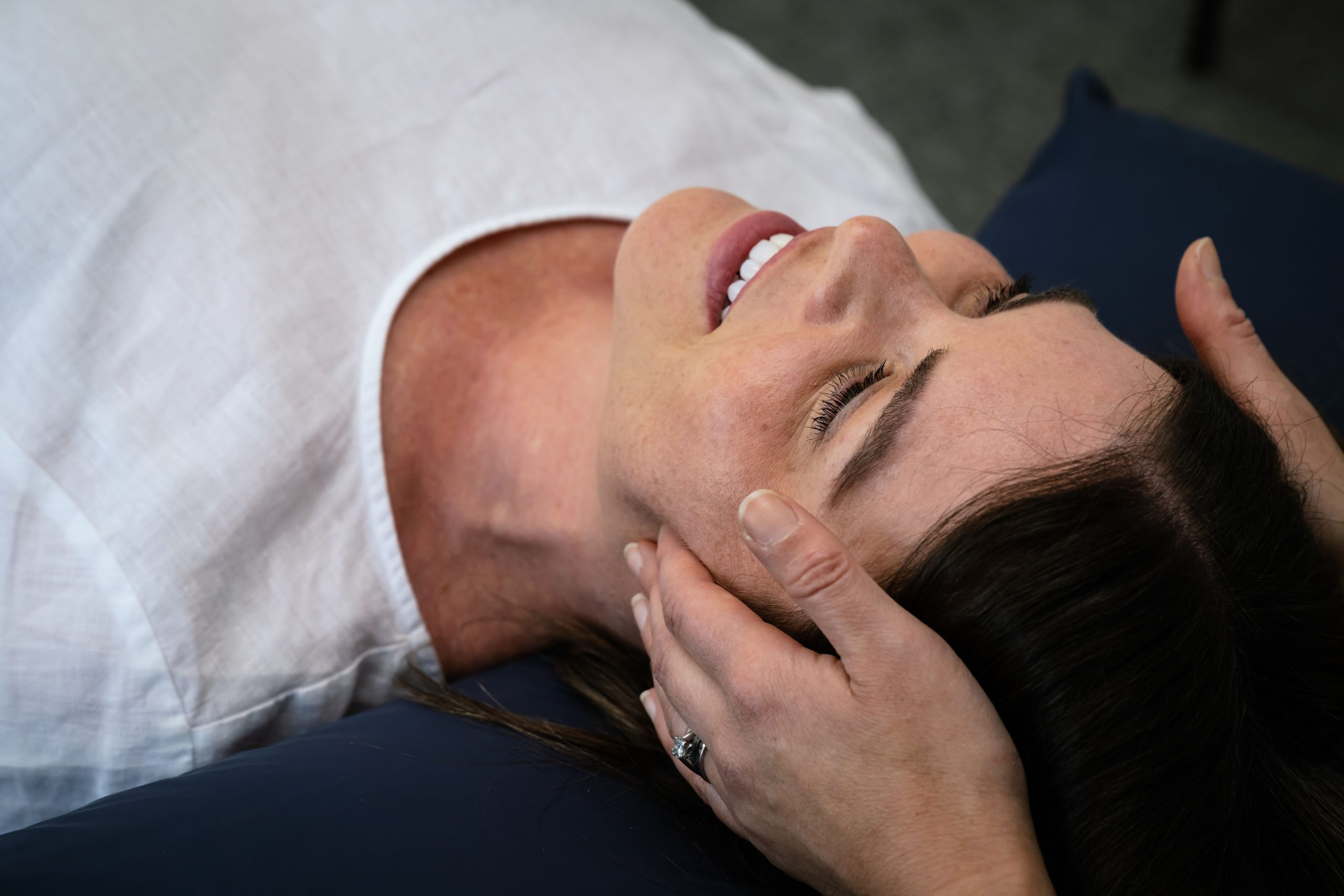How can osteopathy help with my TMD?
The jaw can be quite complex, and often patients don’t know where to turn when they have pain or dysfunction. The good news is the jaw is very similar to other areas of the body in that the musculoskeletal structures around the jaw will often respond well to manual therapy management including hands on release, rehabilitation exercises, and activity modification. Osteopathic management for TMD focuses on:
· Manual Therapy: Hands-on techniques, including soft tissue massage, dry needling and joint mobilisation to the jaw and surrounding tissues of the neck and shoulders.
· Postural Assessment and Correction: Identifying and correcting any postural issues that may contribute to TMD.
· Education and Advice: Providing guidance on self-release techniques, mobility and strength.
· Exercises and lifestyle modifications to manage TMD effectively.
How you can help manage TMD on a day-to-day basis
Managing TMD often involves self-care and lifestyle adjustments. These can include:
· Stop biting nails.
· Wearing a night splint if you clench or grind at night to protect your teeth.
· Apply hot or cold packs on the jaw area to alleviate pain and reduce inflammation.
· Maintain good posture to optimise jaw position and relax muscle tension.
· Practice self-release and exercises on regular basis as guided by osteopath.
· Breathing exercises to help with stress management and clenching during day.
If the above measures do not help reduce the pain in your jaw, your osteopath will refer on if needed. This may include scans of the TMJ, or specialist dentist/surgical referral.
My jaw is clicking, but I don’t have pain, is this a problem?
This is a question we get asked a lot as popping or clicking in the jaw is actually quite common! Though it can be a little concerning, an audible pop or click when opening or closing your mouth, is not always a cause for concern. As we said above, the jaw joint has a small disc in it, which is like the meniscus in your knee. When you get a click with the jaw, it happens because the disc is sitting in the wrong position in the joint. When you open your mouth, the disc re-locates back to its normal position (which is required for completion of the opening movement), and a clicking noise is heard. So, jaw clicking in itself isn’t typically serious if it doesn’t cause pain or affect your ability to open and close your mouth. However, if you’re experiencing jaw popping accompanied by pain or discomfort, we recommend seeing someone to assess your jaw as it may cause longer term issues if left untreated.
If you have been experiencing jaw pain or think you may have TMD, please contact the clinic to make an appointment or chat with one of our osteopaths.

